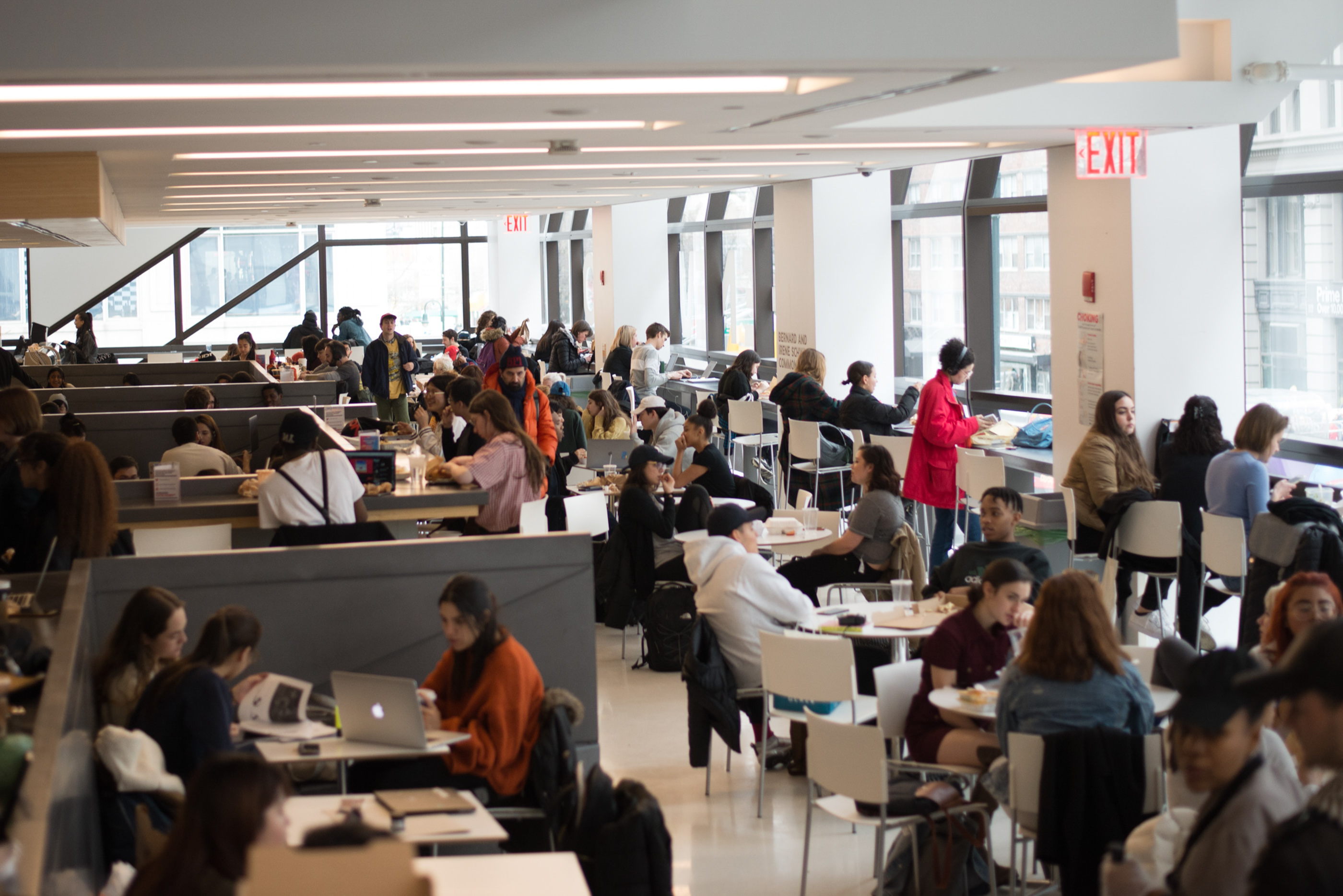Cafeteria workers in the University Center are back under the same management, after last semester’s occupation led by the communist student group.
Cafeteria workers did not know if they would keep their jobs after The New School announced in March that they would not renew their contract with Chartwells, who directly employs the food service workers.
Students occupied the cafeteria starting on May 1 for 16 days under the leadership ofthe Communist Student Group (which officially withdrew as a group five days before all other student protesters left).
The contract that was due to expire in July has been extended. They are still employed by Chartwells and are covered by the UNITE HERE! Local 100 union.
“The contract that was in effect last year has been extended and those terms and conditions continue to apply. The local 100 employees are able to operate under the same, and in some instances, improved conditions than what they have from the prior year,” said Roy Moskowitz, departing chief legal counsel for The New School.
Other changes include the promotion of Anne Moriarta to the cafeteria’s executive chef, replacing Brian Duhart.
“She will play an important role in our efforts to continuously improve food service operations,” according to Amy Malsin, a University spokeswoman.
It wasn’t immediately clear why Duhart left.
Chartwells has brought on about 6 more cooks, cashiers and utility workers since last spring. They intend to hire new cashiers in the future, officials said.
Veronica Ogletree, who works at the hot food bar, said the tumult last semester left many of the staff rattled.
“They wanted to leave and go somewhere else, even though we had our jobs back they were still frightened,” she said
James Graham, is still trying to adjust to the changes. “I think they understand where everything is at, so I’m just giving them a little more time to get things in order,” he said.
In September, the university hired C.J. Rodger as assistant director to oversee the front of the house staff and day-to-day operations in the cafeteria along with any operational issues that come up.
To Rodger, students are her number one priority, she said.
“The students are here first and foremost. They are the ones who are paying to come here,” Rodger said.
The cafeteria mostly remains the same operationally. Workers received new uniforms for the fall semester.
Despite the fervor around campus during the occupation, not all students agreed with the protest.
“With the student protests and stuff, I feel like a lot of stuff was blown out of proportion and people didn’t understand the logistics of what the school was actually planning to do.”said Rachel Nagao, a third year strategic design and management major at Parsons.
While the occupation is long over, the jobs of the cafeteria workers are not guaranteed after the two-year contract is up. Ogletree remained skeptical of the assurances that the extension has brought and for the future.
“We have to worry about the next two years that’s going to come, and it’s going to hit us quick, what are we going to do and we’re not even sure we’re going to be here in two years,” said Ogletree.
Photo by Siri Chilukuri







